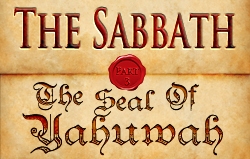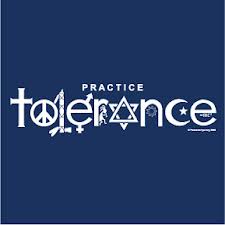[First posted November 3, 2014. Please refer to the previous post:
Looking back to where Sinaites were September 2012, this and part I demonstrate we had started shedding our Jew-wannabe initial tendency; we have managed to wean ourselves from what we started recognizing as more ‘Jewish’ than ‘scriptural’. Today, we have distinctly identified ourselves as gentiles who observe Torah but differently from the Jews. This explains some of the ‘why’s’.—Admin1]
————————————-
First, a look at existing observances by religions which claim their celebrations are biblically-based. These are strictly from a layman’s point of view, and loosely described:
- Expectedly, Judaism which is based on its Sacred Scriptures, the TNK, observes Leviticus 23 (and some extra feasts like Purim and Hanukkah, commemorating significant times in their history after the closing of the TNK canon). Temple-less, the Jews now center their study/worship at the Synagogue; while some celebrations like the Pesach and erev Shabbat are family-celebrations in the home setting. Understandably, over centuries they have built up traditions around these feasts, and in their peculiarly Jewish way some cultural elements have been added to biblical basics.
- The Weekly Sabbath (Friday sundown erev Shabbat to Saturday sundown havdalah);
- Spring festivals – Pesach (Passover), Hag Hamatzot (Unleavened Bread), Bikkurim (First Fruits), Shavuot (Pentecost)
- Fall Feasts: Rosh haShanah/Yom Teruah (New Year, Feast of Trumpets), Yom Kippur (Day of Atonement), Sukkot (Feast of Booths)
- Non-biblical but historical/cultural celebrations: Hanukkah, Purim.
- Christianity’s religious observances did not take off from the TNK even as it appended the Hebrew Scriptures as “Old” to its “New”. Instead, since everything was “new” from the covenant to the scriptures to the theology, “holy days of obligation” and celebrations center around the life and ministry, death and resurrection of their Savior. Strangely though, the timing of Easter/Holy Week somehow coincides with the Biblical spring festivals, while the timing of Christmas is close to the Jewish celebration of the ‘Festival of Lights’ Hannukah.
- Sunday–The Lord’s Day—- is the weekly day of rest for church worship/fellowship/Holy Sacrifice of the Mass; in fact this Sunday system is adopted worldwide except in Israel where the Sabbath remains as the set apart biblical day.
- Holy Week — reflecting the Passion of Jesus on his last week of life is commemorated by Palm Sunday, Maundy Thursday, Good Friday, Black Saturday, Resurrection Sunday.
- Pentecost
- Christmas
- And special celebrations related to the Virgin Mother and saints.
- Messianics observe Leviticus 23 feasts, just like Judaism, but with a special Christian touch. They use Hebrew names and titles; they use David Stern’s Complete Jewish Bible which is OT and NT full of Hebrew words; they pick up many Jewish traditions, they sing Jewish songs, their prayers are even in Hebrew though concluded “In Yeshua’s Name.” If you happen to walk into a Messianic feast celebration, you would almost think you’re in a Jewish context, because they even wear traditional Jewish garb (kippa, tzitzit), and use Jewish symbols like the menorah, shofar, star of David, including the Israeli flag. . . . until you hear “In Yeshua’s mighty Name.”
How about non-Jews, non-Christians, non-Messianics, simply gentile worshippers of YHWH and observers of His TORAH, where do we now fit?
First of all, we go along with the Jewish sages’ teaching that while the Torah gives commandments and instructions, some give specific details while others are general statements. Where instructions are specific, simply obey; where instructions are generalities, we have the freedom to interpret according to the “spirit of the law,” adapt to the culture and to the times.
For example, the weekly Sabbath is Saturday, the 7th day of the week, not the 1st (Sunday), so that is the calendar day we set apart and prepare for. How to observe it other than simple cessation of work? Nothing more is detailed. Jews have built up their own traditional observances on how to spend the day. We love the family get-together on sundown Friday (erev Shabbat) to welcome the Sabbath as well as sundown Saturday for the havdalah or saying goodbye to the Queen of Days. In our family gatherings, we follow the traditional lighting of the Shabbat candles by the mother, the saying of blessings by the father upon the wine and bread. We have embraced this beautiful Jewish tradition because we have discovered it to be such a joyous and special family time.
“Remember the Sabbath to keep it holy . . . ” is a beautiful song composed by a Seventh Day Adventist musician, we have added it to our hymnbook. Indeed, Sabbath celebration has become the peak of our week, we count the days “6 days before, 5 days before . . .” On the Sabbath, those of us who are able to come together to worship do so, or have a Torah study and a fellowship meal. Nothing has been required, just something we have decided to do to make the Sabbath truly a set-apart day, different from the other days of the week. Some us have to work on Saturday and can’t get time off, so we do welcome the Sabbath at the end of our workday Friday and start our rest and special time with the Lord; on Saturday we spend our lunch hour to worship together. Unfortunately, we are caught in a Sunday system so we do the best that we can, not out of duty or obligation, but out of our love for YHWH’s Sabbath.
How about the other Leviticus 23 feasts? Since they are “My appointed times”says YHWH, we obey and observe them. But how? In a way that is meaningful to us individually as well as in community.
We’re not Jews so we don’t feel obligated to do the Jewish way; it doesn’t mean we wouldn’t do it at all, in fact we started out doing it their way if only to gain understanding of the significance and meaning of the feast in their cultural and historical context. We’ve even learned Jewish prayers and Jewish songs. For now, while in transition, we have decided to leave our options open . . . we do think knowing the Jewish way is valuable. Their historical context allowed the Israelites to do exactly as YHWH commanded, their whole life revolved around His commandments. Theirs was a theocracy at first, then a monarchy that still revolved around TORAH life. Even if modern Israel is a secular state, still it would be convenient to live there where we expect these feasts to be holidays, non-working days, days of rest, at least among the religious Jews.
We have decided, after a close reading of the specific commandments on the feasts, that except for the Passover which has specific instructions already incorporated in the celebration, we are given freedom to assimilate as much as we can of Jewish traditions or resort to what we are able to accommodate within the limitations of our culture and our times. Meaning . . . if a poor Asian farmer and his family cannot have wine and bread, whatever they have — rice and fish — is a celebration of YHWH’s blessing. While we believe that we could use all the help we can get by seeing how the Jews have celebrated, unless the Bible is specific in order to communicate truths through symbols used in celebrations, we may acculturate, adapt to our specific circumstances.
A specific example is this: when we follow the Haggadah for the Passover Seder, we understand why the prayers would refer back to Israel’s redemption from bondage to Egypt. While we can relate to the mixed multitude in that event in biblical history, we relate more now to our current exodus from Christ-centered religion (our “Egypt”) to biblical faith in YHWH (our “Sinai” encounter).
This is how to make these feasts meaningful for ourselves, individually and in community without losing sight of the essence of the celebrations. We should endeavor to understand why the TORAH Giver YHWH emphasizes the remembrance of His acts in the history of Israel, for the learning of the nations, the gentiles. We interpret “appointed times,” to mean that our Lord YHWH commits Himself to being present at His feasts in a special way. . . whether or not we show up. Let us not stand him up!
One last point that some purists might disagree with: Are we celebrating holidays such as Christmas and the pagan celebration of Halloween? Why not, we live in a country whose vacation days incorporate Christmas, it’s a fun holiday gift-giving time, when families reunite, when employers are generous, when people just feel festive while they start looking forward to the end of another year. Before we discovered there was no Devil and demonic spirits, we shunned Halloween which made my agnostic brother call us “killjoys” for preventing our kids to have fun; now, it’s just another time to party and and allow kids to go with their friends trick-or-treating, as long as they are taught that these are nothing more than fun times to wear costumes . . . just like New Year. Why exclude ourselves from such times that have meaning for our Christian or non-religious counterparts?
Our faith in YHWH is hardly threatened when we show consideration and respect for the celebrations of people of other faiths.
for Sinai 6000
Core Community





Reader Comments